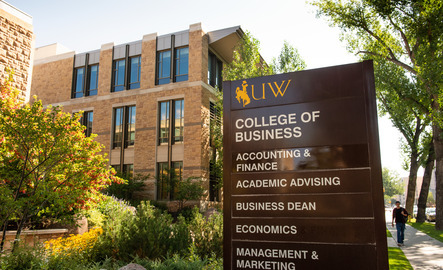What is Economics?
It’s tempting to think economics is just the study of money. But it’s much broader
than that. Economics looks at how we create economic value through trade, manage time
and other scarce resources, build wealth, make informed decisions and influence behavior—issues
that affect everyone on the planet.
Economic policies can improve local health, protect the environment and make it easier
for students to afford college. Economic analysis helps companies better understand
market forces, assists nations in predicting the outcomes of new initiatives and enables
people to make appropriate financial planning decisions.
Why study econ? Because the world needs more people who can think strategically, who
can leverage data into great decisions and who can conduct unbiased policy analysis
on the challenges facing us all including prosperity, poverty, trade, equality, energy
and climate change.
Plus, economics is a great major for employment-ready graduates—students interested
in higher salaries and analytical jobs in fields such as the environment, health,
nonprofits, poverty and social welfare. It’s also excellent preparation for graduate
work in law, political science, business and economics; UW graduates are routinely
accepted into top graduate programs in the country.

The economics program provides students with a comprehensive education in economics
with five distinct areas of focus. This approach allows students to tailor their degree
according to their individual interests and career goals. By offering a diverse range
of areas to concentrate on, students can gain a well-rounded education that prepares
them for various careers in the field of economics.
Areas of Focus
- Behavioral Economics
- Development Economics
- Energy Economics
- Environmental Economics
- Resource Economics
Our department offers a quantitative concentration for business economics majors,
focusing on analytical skills used to study production, strategy, and resource allocation.
Courses include economics, statistics and related electives.

What Can You Do With an Economics Bachelor’s Degree?
Studying economics at UW will help you acquire critical thinking and research skills you can parlay into careers in government, business and nonprofit organizations. As a STEM field, economics provides analytical tools that you can apply to a wide range of issues, decisions and settings. It also provides an excellent foundation for graduate study in business, economics, political science, public administration and law.
- Director of Business Development
- Senior Technical Recruiter
- Senior Director, Strategic Government Relations & Economist
- FP&A Manager
- Director of Product Development
- Assistant Vice President, Internal Wholesaler
- Senior Manager
- Portfolio Manager/Securities Analyst
- Energy Policy Advisor
- NFP Partners
- Harvard Business Review
- MultiState Associates Inc.
- GiftCard Partners Inc.
- Bonfils Blood Center
- Black Creek Capital Markets
- Alpha FMC
- WealthSource Partners LLC
- University of Wyoming
- First Western Bank Trust
- Thrivent Financial
Certainly! A B.S.E. provides an excellent foundation for graduate study in business, economics, political science, public administration and law. UW Economics alumni have gone on to pursue graduate degrees prestigious institutions such as:
- Duke University
- University of Illinois
- University of Denver
- University of Montana School of Law
- NYU Stern School of Business
- University of Utah
- Pepperdine Law
- University of Wyoming
- and more!
When you choose to study economics at UW, you will engage with some of the nation’s
best economists, whose work informs policy in Wyoming and all over the world. IDEAS
lists the University of Wyoming among the top 10 percent of institutions in environmental
economics. Our “principles” courses in economics are taught by faculty not graduate
students, so you get the benefit of learning the fundamentals of the discipline from
experienced teachers and scholars.
This highly flexible program gives you an outstanding foundation in economics, while also providing the flexibility to tailor the degree to your interests through studies in environmental economics, energy economics, resource economics, development economics and behavioral economics.
“I have had so much support from the economics faculty to dream big and to seek answers and opportunities that led to me applying to jobs that I thought were too big of a reach."
- Kirby Lawrence, B.S. in Economics and Statistics ’16 | Mathematical Statistician for the U.S. Census Bureau


